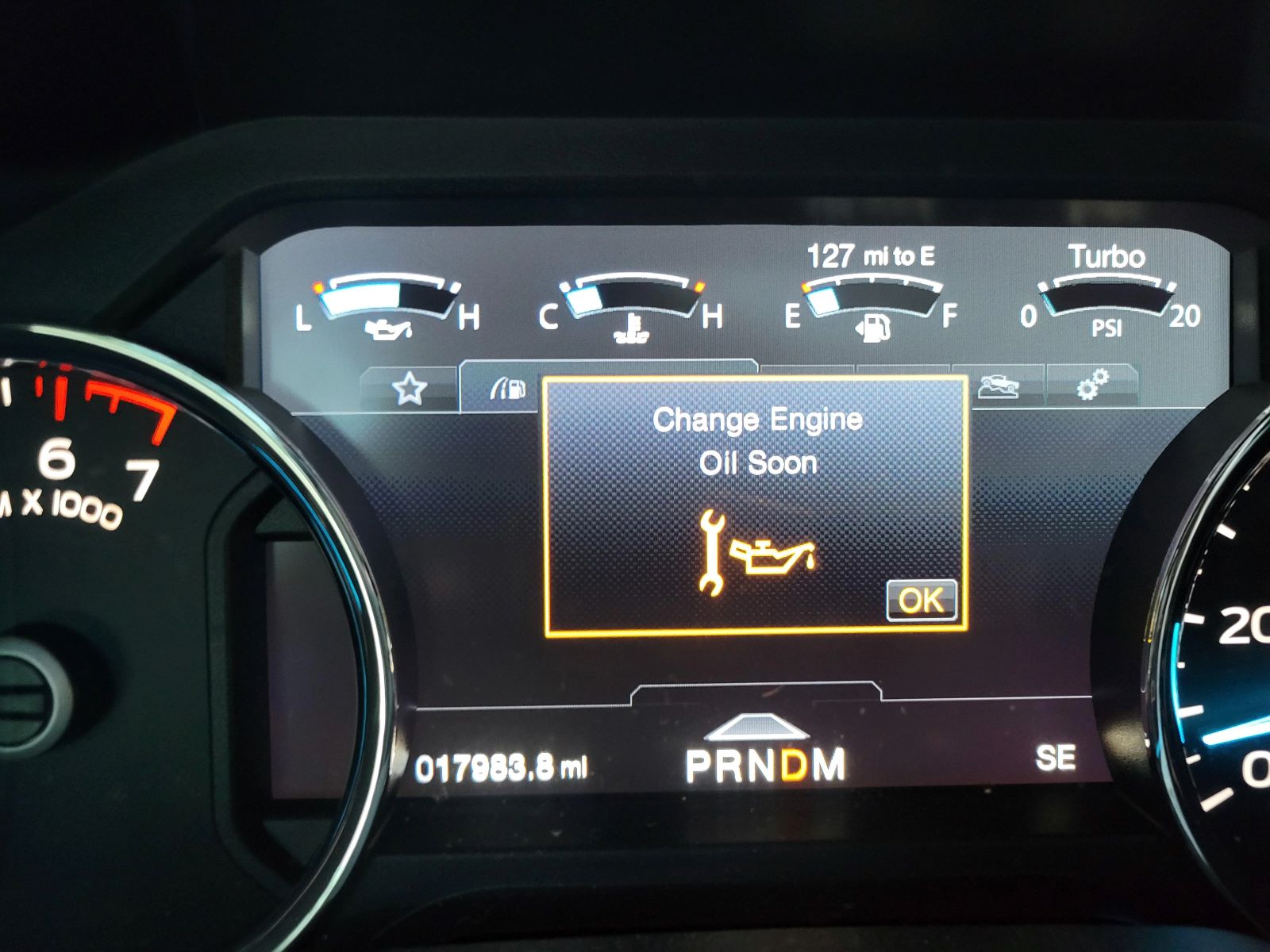Home>Law and Legal Advice>What Cops Discover When They Run Your Name Will Shock You!


Law and Legal Advice
What Cops Discover When They Run Your Name Will Shock You!
Published: January 19, 2024
Get expert legal advice on what police can discover when running your name. Protect your rights with our comprehensive law and legal advice.
(Many of the links in this article redirect to a specific reviewed product. Your purchase of these products through affiliate links helps to generate commission for Regretless.com, at no extra cost. Learn more)
Table of Contents
Introduction
Have you ever wondered what information law enforcement officers can uncover when they run your name through their systems? The process of running someone's name can reveal a surprising amount of personal data, and the results can have a profound impact on individuals' lives. From routine traffic stops to more serious encounters, the information that police can access through a simple name search is truly eye-opening.
In this article, we will delve into the world of police database searches and uncover the startling details of what law enforcement officers can discover when they run your name. Understanding this process is crucial for anyone who wants to comprehend the scope of information that is accessible to police and the potential implications of this practice.
So, fasten your seatbelt as we embark on a journey to explore the intricacies of police database searches and the significant implications they can have on individuals' lives. Let's shine a light on what really happens when law enforcement officers run your name through their systems.
What Information Can Police Access?
Law enforcement officers have access to a wide array of databases and systems that enable them to retrieve extensive information when they run an individual's name. These databases contain a plethora of personal data, allowing the police to gain insight into various aspects of an individual's life. Some of the key types of information that police can access include:
-
Criminal Records: One of the most significant pieces of information that police can access is an individual's criminal record. This includes details of past arrests, convictions, and any outstanding warrants. The availability of this information allows law enforcement to assess the potential risk posed by an individual and make informed decisions during encounters.
-
Outstanding Warrants: Police can quickly determine if an individual has any outstanding warrants by running their name through the appropriate databases. This information is crucial for ensuring public safety and apprehending individuals who are wanted by the authorities.
-
Driving History: When running a name search, police can access an individual's driving history, including any traffic violations, license suspensions, or DUI convictions. This information is essential for evaluating an individual's driving behavior and compliance with traffic laws.
-
Civil Records: In addition to criminal and driving records, police can access civil records such as lawsuits, restraining orders, and other legal matters. This information provides insight into an individual's involvement in civil legal proceedings and any potential risk factors that may be relevant to law enforcement interactions.
-
Personal Details: Police databases can also contain personal details such as an individual's address, contact information, and in some cases, employment history. This information can be valuable for locating individuals, conducting follow-up investigations, or establishing contact when necessary.
-
Welfare Checks: In situations where the well-being of an individual is in question, police can access relevant databases to conduct welfare checks. This allows law enforcement to gather information that may be crucial for ensuring the safety and security of individuals in need of assistance.
In essence, police have access to a comprehensive range of information when they run an individual's name through their systems. This access enables law enforcement to make informed decisions, assess potential risks, and take appropriate actions based on the information retrieved. Understanding the breadth of information that police can access is essential for individuals to comprehend the potential implications of name searches and the importance of upholding legal and ethical standards in accessing and utilizing this information.
How Do Police Run Your Name?
When law enforcement officers encounter an individual and need to ascertain their background information, they have several methods for running a name search. The process typically involves accessing various databases and systems that are designed to provide comprehensive insights into an individual's history and potential risks. The following are some of the primary methods through which police run a name search:
-
Mobile Data Terminals (MDTs) and In-Car Computers: Police officers often have access to mobile data terminals or in-car computers that are directly connected to law enforcement databases. These systems allow officers to input an individual's name and quickly retrieve relevant information, including criminal records, outstanding warrants, and driving history. The instantaneous nature of this method enables officers to make informed decisions during encounters with individuals.
-
Radio Dispatch: In situations where immediate access to in-car computers or MDTs is not available, officers can utilize radio dispatch to run a name search. Dispatchers have the capability to access databases and conduct name searches on behalf of officers in the field. This method allows for real-time retrieval of critical information, enabling officers to assess potential risks and take appropriate actions as necessary.
-
Centralized Database Access: Law enforcement agencies often have access to centralized databases that consolidate a wide range of information, including criminal records, warrants, and driving history. Officers can access these databases through secure systems to run name searches and retrieve comprehensive details about an individual's background. This centralized approach streamlines the process of accessing critical information and ensures that officers have the necessary data to make informed decisions.
-
Interagency Communication: In certain situations, law enforcement officers may need to collaborate with other agencies to run a name search and obtain relevant information. Interagency communication and data sharing enable officers to access a broader spectrum of data, including cross-jurisdictional records and additional details that may not be readily available within their own agency's databases. This collaborative approach enhances the depth and accuracy of the information retrieved during name searches.
Overall, the methods through which police run a name search are designed to provide efficient and comprehensive access to critical information. These processes are essential for enabling law enforcement officers to make informed decisions, ensure public safety, and effectively respond to various situations. Understanding the mechanisms behind name searches underscores the significance of responsible and ethical use of this information, emphasizing the importance of upholding legal and procedural standards in accessing and utilizing personal data for law enforcement purposes.
What Can Police Discover When They Run Your Name?
When law enforcement officers run your name through their systems, they can uncover a wealth of personal information that provides critical insights into your background and potential risks. Some of the key details that police can discover when conducting a name search include:
-
Criminal History: One of the most significant findings from a name search is an individual's criminal history. This encompasses past arrests, convictions, and any outstanding warrants. By accessing this information, police can assess the potential risk posed by an individual and make informed decisions during encounters.
-
Outstanding Warrants: Through name searches, police can swiftly determine if an individual has any outstanding warrants. This knowledge is crucial for ensuring public safety and apprehending individuals who are wanted by the authorities.
-
Driving Records: Law enforcement officers can access an individual's driving history, including traffic violations, license suspensions, or DUI convictions. This information is essential for evaluating an individual's driving behavior and compliance with traffic laws.
-
Civil Records: In addition to criminal and driving records, police can access civil records such as lawsuits, restraining orders, and other legal matters. This provides insight into an individual's involvement in civil legal proceedings and any potential risk factors that may be relevant to law enforcement interactions.
-
Personal Details: Police databases can contain personal information such as an individual's address, contact details, and in some cases, employment history. This data can be valuable for locating individuals, conducting follow-up investigations, or establishing contact when necessary.
-
Welfare Checks: In situations where the well-being of an individual is in question, police can access relevant databases to conduct welfare checks. This allows law enforcement to gather information crucial for ensuring the safety and security of individuals in need of assistance.
The information retrieved from a name search equips law enforcement officers with valuable insights that can significantly impact their interactions with individuals. Understanding the breadth of information that police can access underscores the importance of responsible and ethical use of this data. It also emphasizes the significance of upholding legal and procedural standards in accessing and utilizing personal information for law enforcement purposes.
Overall, the details that police can discover when they run your name through their systems are extensive and can have far-reaching implications for individuals' lives. This underscores the importance of transparency, accountability, and ethical considerations in the use of personal data by law enforcement agencies.
The Impact of Police Checks on Individuals
Police checks, which involve the process of running individuals' names through law enforcement databases, can have profound and far-reaching impacts on the lives of those being scrutinized. The implications of police checks extend beyond the immediate interaction with law enforcement officers, shaping individuals' personal, professional, and social spheres. Understanding the multifaceted impact of these checks is essential for comprehending the significance of responsible and ethical use of personal data by law enforcement agencies.
Stigmatization and Perception
One of the primary impacts of police checks on individuals is the potential for stigmatization and altered perceptions within their communities. The revelation of a criminal record or outstanding warrants can lead to negative assumptions and biases, affecting how individuals are viewed by their peers, colleagues, and neighbors. This can result in social ostracization, limited employment opportunities, and strained relationships, creating significant challenges for individuals seeking to reintegrate into society.
Professional and Educational Opportunities
The findings of a police check can have substantial ramifications on individuals' professional and educational opportunities. A criminal record or past legal entanglements revealed through these checks can hinder career advancement, limit job prospects, and impede access to educational institutions. This can perpetuate cycles of unemployment, economic instability, and diminished prospects for personal growth and development.
Emotional and Psychological Well-being
The emotional and psychological well-being of individuals subjected to police checks can be profoundly impacted. The stress, anxiety, and emotional toll resulting from the scrutiny of personal information can have detrimental effects on mental health. The fear of judgment, the uncertainty of how the revealed information will be perceived, and the potential consequences of the findings can contribute to heightened levels of distress and emotional strain.
Trust in Law Enforcement and Institutions
The experience of undergoing a police check can influence individuals' trust in law enforcement and broader institutional systems. The manner in which personal information is accessed, utilized, and communicated by law enforcement officers can shape individuals' perceptions of fairness, justice, and accountability within the legal framework. Instances of mishandling or misuse of personal data can erode trust and confidence in the integrity of law enforcement practices and institutional processes.
Legal and Social Repercussions
For individuals with prior legal involvement, police checks can have legal and social repercussions that extend beyond the initial encounter. The revelation of past legal issues can impact child custody arrangements, immigration status, housing opportunities, and eligibility for various social services. These legal and social ramifications can perpetuate challenges and barriers for individuals striving to rebuild their lives and move forward from past difficulties.
In essence, the impact of police checks on individuals is multifaceted, encompassing social, professional, emotional, and legal dimensions. Recognizing the weight of these implications underscores the critical importance of responsible and ethical handling of personal data by law enforcement agencies. It also emphasizes the need for procedural transparency, accountability, and the safeguarding of individuals' rights and dignity throughout the process of conducting police checks.
Conclusion
The process of running an individual's name through law enforcement databases unveils a myriad of personal information, ranging from criminal records and outstanding warrants to driving history and civil matters. This extensive access to personal data empowers law enforcement officers to make informed decisions, assess potential risks, and respond effectively to various situations. However, the implications of police checks extend far beyond the immediate encounter, significantly impacting individuals' lives in social, professional, emotional, and legal dimensions.
The multifaceted impact of police checks underscores the critical importance of responsible and ethical handling of personal data by law enforcement agencies. It emphasizes the need for procedural transparency, accountability, and the safeguarding of individuals' rights and dignity throughout the process of conducting police checks. The potential for stigmatization, altered perceptions, and limited opportunities resulting from the revelation of personal information necessitates a balanced approach to accessing and utilizing this data.
Furthermore, the emotional and psychological toll on individuals subjected to police checks highlights the importance of ensuring compassionate and respectful treatment throughout law enforcement interactions. Upholding legal and ethical standards in accessing and utilizing personal data is essential for fostering trust, fairness, and integrity within the legal framework, thereby preserving individuals' confidence in law enforcement and broader institutional systems.
As we navigate the complexities of police checks and the far-reaching implications they entail, it is imperative to prioritize the protection of individuals' privacy, rights, and well-being. Striking a balance between the legitimate needs of law enforcement and the preservation of individuals' dignity and opportunities is paramount in ensuring the ethical and equitable use of personal data in the context of police checks.
In conclusion, the profound impact of police checks on individuals necessitates a conscientious and principled approach to accessing, handling, and communicating personal information. By upholding the values of transparency, accountability, and respect for individuals' rights, law enforcement agencies can navigate the complexities of police checks while safeguarding the dignity and well-being of those whose names are subjected to scrutiny.













